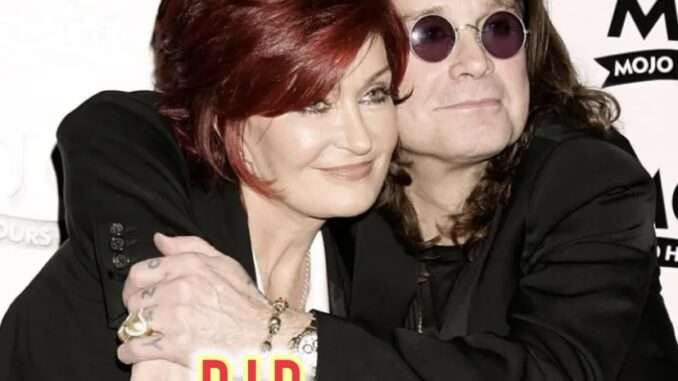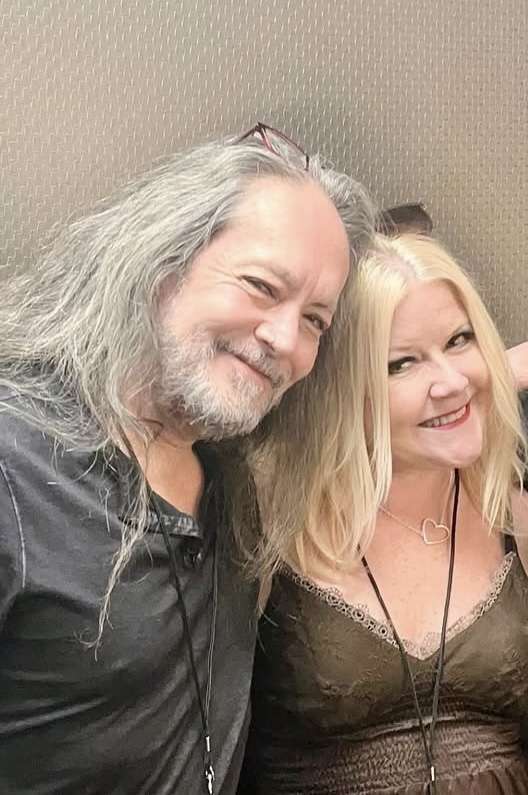
For decades, Jake E. Lee’s name has been tied to one of heavy metal’s most intriguing stories. As the guitarist who stepped into the impossible role of replacing Randy Rhoads after his tragic death in 1982, Lee carved out his own legacy alongside Ozzy Osbourne during the mid-1980s. With fiery playing and a distinct style that refused to mimic anyone else, he helped craft two albums that remain cornerstones of Ozzy’s solo career: *Bark at the Moon* (1983) and *The Ultimate Sin* (1986). Yet, behind the music lay years of silence, misunderstandings, and distance between Lee and Osbourne. All of that finally came full circle at *Back to the Beginning*, the blockbuster farewell event that marked the last performances of both Black Sabbath and Ozzy himself. For Lee, the music was powerful, the welcome was overwhelming—but reconciling with Ozzy was the true highlight of the night.
“I always wanted to reconcile, tell him there weren’t any hard feelings and end things on a friendly note,” Lee said in an interview with *Guitarist*. “I got to do that.” His words revealed that, while the heavy metal community celebrated a historic concert, it was also a moment of personal closure for two men whose paths had been intertwined by fate, talent, and the unpredictable currents of rock ’n’ roll.
Lee never hid the fact that being fired from Ozzy’s band was painful, but he also never harbored lasting bitterness. The guitarist explained that he understood the volatility of the music industry, especially in a world dominated by record label pressures, image concerns, and the unpredictable moods of artists and managers. “He changed everything for me,” Lee reflected. “He put me in the spotlight. Whether that would have happened if I hadn’t been in his band is anybody’s guess.” Instead of resentment, Lee chose gratitude, acknowledging that his time with Ozzy had given him a platform to share his talent with the world.
Stepping into Ozzy’s band in the early 1980s was no easy task. Randy Rhoads had not only been a phenomenal guitarist but also a beloved figure in the rock community. His death left a gaping hole in Ozzy’s music and in the hearts of fans worldwide. Lee was thrust into the spotlight under immense scrutiny, with critics and fans 
While the music spoke volumes, Lee admitted that he and Ozzy often struggled to connect on a personal level. “We never had the tight bond some people imagined,” he shared. “There was respect, but also distance.” Still, Lee credited Ozzy with shaping him in ways he never expected. One offhand comment from the Prince of Darkness, he recalled, forced him to elevate his playing forever. After watching Lee perform during rehearsals, Ozzy simply said, *“You can be better.”* For Lee, those words became a lifelong motivator. “That one comment pushed me harder than anything else. It made me raise my own bar.”
Decades later, standing together again on stage at Ozzy’s final show, all of those complicated emotions—the pressure, the respect, the estrangement—seemed to dissolve. Lee was given a hero’s welcome by the crowd, many of whom had grown up idolizing his era of Ozzy’s band. But for the guitarist himself, the most powerful moment came offstage, when he and Ozzy finally spoke honestly. There were no accusations, no regrets—just two men acknowledging the past and choosing to leave it on a note of mutual respect.
The reconciliation symbolized something bigger than music. It showed the human side of heavy metal’s larger-than-life figures, where egos, conflicts, and business decisions can sometimes overshadow genuine connections. Lee’s openness about never bearing a grudge highlights a maturity and perspective that often get lost in the louder parts of rock ’n’ roll history. “I didn’t want the story of us to end with silence,” he admitted. “Now it feels like it ended the right way.”
As the final notes of *Shot in the Dark* and *The Ultimate Sin* echoed across the arena, fans witnessed a rare kind of closure. For Ozzy, it was the end of a career that redefined heavy metal. For Jake E. Lee, it was the end of a personal chapter that had begun with pressure, carried through triumphs and disappointments, and ultimately closed with peace. While the world will always remember Lee for his guitar heroics and his role in shaping Ozzy’s legacy, he will likely remember *Back to the Beginning* not just as a gig, but as the night he made peace with the man who once told him he could be better—and, in doing so, made him great.
Leave a Reply